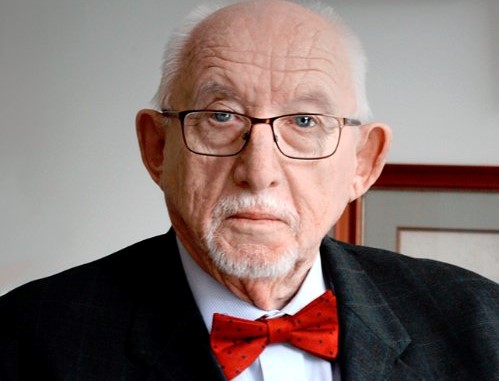
La festa del lavoro è quasi arrivata e con essa un altro weekend benedetto di tre giorni. Tre giorni senza lavoro!
Il giorno migliore, ovviamente, è quello di metà, quando possiamo crogiolarci nel tempo libero senza la consapevolezza che ci attanaglia la maggior parte di noi la domenica pomeriggio – che dobbiamo scalare la scarpata del lunedì.
Il fatto è che noi americani lavoriamo troppo. Non necessariamente un lavoro troppo difficile, ma troppo. Negli Stati Uniti, le vacanze dei lavoratori sono per lo più due settimane preziose e un terzo dopo un lungo servizio.
In Europa sono un mese o, come in Germania, spesso fino a sei settimane, ma nessuno accusa i tedeschi di essere oziosi o di non esibirsi.
Non avremo più vacanze, credo, fino a quando i lavoratori ad alta tecnologia – quelli che si potrebbero definire “gli indispensabili” – li richiedano e li ottengono. Alcuni hanno già la scelta di lavorare in Europa e stanno esaminando il “pacchetto” della loro occupazione, non solo i dollari nella busta paga. Se chiedono di più, l’idea andrà in giro. Tuttavia, più giorni di vacanza non avranno gli stessi benefici di quelle domeniche piacevoli in un weekend di tre giorni. C’è un modo per aumentare il tempo libero con lo stesso numero di ore di lavoro in una settimana.

L’ho sperimentato e fa meraviglie in termini di felicità e creatività dei dipendenti. All’inizio degli anni ’60, sono stato uno scrittore per BBC Television News e abbiamo lavorato su un favoloso sistema di turni: tre giorni e tre giorni liberi.
Questo sistema ha riconosciuto che i giornalisti raramente potevano finire ciò che avevano iniziato in un procrustean otto ore. Il turno di 10 ore della BBC – tre giorni e tre giorni liberi – ha accettato e accolto la realtà del lavoro piuttosto che cercare di comprimere il lavoro in un arco di tempo arbitrario, lasciandolo incompiuto o per qualcun altro per provare a finire – dice una sceneggiatura per la trasmissione tardiva di notizie o la copertura di un dibattito parlamentare in corso.
La dimensione sociale di questa struttura di lavoro era ancora più interessante. Scrittori ed editori sono diventati più produttivi in ??altri modi: alcuni hanno scritto romanzi, altri hanno lavorato su biografie o si sono cimentati in spettacoli teatrali. Gli era stato dato il dono del tempo.
Armato di questa esperienza, quando lavoravo al Washington Post, dove ero vicedirettore e anche presidente della Washington-Baltimore Newspaper Guild, uno dei più grandi capitoli della American Newspaper Guild, il sindacato che rappresentava giornalisti e alcuni altri lavoratori, rimasi sconvolto dal casino che il Post aveva con i suoi straordinari.
C’era un complicato sistema di straordinari e qualcosa chiamato “cutoff straordinario”, che si applicava alle persone che erano pagate più del salario negoziato dalla Gilda. Ha portato a scontri, giornalisti coscienziosi e redattori che lavoravano straordinariamente senza compenso, e importanti alterazioni nei programmi del fine settimana. Nessun vincitore, solo persone infelici. Il management sapeva che era un disastro e avrebbe voluto cambiarlo.
Quando ho suggerito il sistema BBC alla Washington Post Company, la direzione era entusiasta. Hanno chiesto se il sindacato l’avrebbe proposta come proposta formale nei negoziati contrattuali, per poi iniziare un nuovo contratto triennale.
Abbiamo dovuto far controllare la nostra proposta dalla sede del sindacato, l’Internazionale. Dissero: “No, no, no. Eresia. ”Il sindacato aveva sempre combattuto per un giorno lavorativo più breve dal cosiddetto“ contratto modello ”, scritto da Heywood Broun, famoso reporter, editorialista e fondatore della American Newspaper Guild, nel 1935. Fu lasciato cadere come una storia calunniosa .
Bene, il turno di tre giorni non funzionerà in molti posti, ma nel giornalismo, nella produzione e nella vendita al dettaglio, vale la pena provare. Centinaia di migliaia, se non milioni, di lavoratori avrebbero la gioia di quel giorno di riposo e, forse, di creatività.
Quando ne apri un altro freddo l’1 settembre, pensa a quanto sarebbe bello se ciò accadesse tutto l’anno. Tre giorni e tre giorni liberi. Glorioso!
On Twitter: @llewellynking2
Llewellyn King è produttore esecutivo e conduttore di “White House Chronicle” su PBS.
Llewellyn King is executive producer and host of “White House Chronicle” on PBS.
Read this column on:
InsideSources
White House Chronicle
—————————————————
Labor Day — the Untrammeled Joy of a Three-Day Holiday
Labor Day is almost here and with it another blessed, three-day weekend. Three days without work!
The best day, of course, is the middle one, when we can luxuriate in the time off without the knowledge that grips most of us on Sunday afternoons — that we must climb Monday’s escarpment.
The fact is that we Americans work too much. Not necessarily too hard, but too much. In the United States, workers’ vacations are mostly two precious weeks — and a third after long service. In Europe, they’re a month or, as in Germany, often up to six weeks — yet no one accuses the Germans of being idlers or not performing.
We won’t get more vacations, I think, until high-tech workers — those one might refer to as “the indispensables” — demand and get them. Some already have the choice of working in Europe and are looking at the “package” of their employment, not just the dollars in the paycheck. If they demand more, the idea will get around.
However, more vacation days won’t have the same benefit as those leisurely Sundays in a three-day weekend.
There is a way to greater leisure with the same number of work hours in a week. I have experienced it, and it does wonders in terms of employee happiness and creativity.
In the early 1960s, I was a writer for BBC Television News, and we worked a fabulous shift system: three days on and three days off. This system recognized that journalists could seldom finish what they had started in a procrustean eight hours.
The BBC 10-hour shift — three days on and three days off — accepted and accommodated the reality of the work rather than trying to squeeze the work into an arbitrary time frame, leaving it either unfinished or for someone else to try to finish — say a script for the late news broadcast or coverage of an ongoing parliamentary debate.
The social dimension of this work structure was even more interesting. Writers and editors became more productive in other ways: Some wrote novels, others worked on biographies or tried their hands at plays. They’d been given the gift of time.
Armed with this experience, when I worked at the Washington Post, where I was an assistant editor and also president of the Washington-Baltimore Newspaper Guild, one of the largest chapters of the American Newspaper Guild, the trade union that represented journalists and some other workers, I was appalled at the mess the Post had with its overtime.
There was a complicated system of overtime and something called “overtime cutoff,” which applied to people who were paid more than the Guild-negotiated salary. It led to fights, conscientious reporters and editors working overtime without compensation, and major altercations over weekend schedules. No winners, just unhappy people. The management knew it was a mess and would’ve liked to change it.
When I suggested the BBC system to the Washington Post Company, management was enthusiastic. They asked if the union would bring it forward as a formal proposal in the contract negotiations, then just beginning for a new three-year contract.
We had to have our proposal vetted by union headquarters, the International. They said, “No, no, no. Heresy.” The union had always fought for a shorter workday since the so-called “model contract,” written by Heywood Broun, the famous reporter, columnist and founder of the American Newspaper Guild, in 1935. It was dropped like a libelous story.
Well, the three-days shift won’t work in many places, but in journalism, manufacturing and retail, it’s worth a try. Hundreds of thousands, if not millions, of workers would have the joy of that middle day of rest and, maybe, creativity.
When you open another cold one on Sept. 1, think about how nice it would be if that happened all year. Three days on and three days off. Glorious!
LLEWELLYN KING
Creatore, produttore esecutivo e conduttore
Cronaca della Casa Bianca

Llewellyn King è giornalista, editorialista, internazionalista, esperto di energia, appassionato di scienza e tecnologia, docente e oratore pubblico. È un emittente britannico con sede a Rhode Island, negli Stati Uniti e un frequente collaboratore di Huffington Post. Llewellyn King è produttore esecutivo e conduttore di “White House Chronicle” su PBS.
Come appassionato campione di ME / CFS ha scritto numerosi articoli sulla malattia e fondato e co-conduttore ME / CFS Alert [1] su YouTubecon Deborah Waroff dal 2011.
Ora nel suo 17 ° anno in onda, il programma può anche essere visualizzato sul Web all’indirizzo whchronicle.com .Una versione audio di “White House Chronicle” va in onda nei fine settimana sul popolare canale di Sirius XM Satellite Radio POTUS (Politica degli Stati Uniti) 124. King è anche un commentatore regolare di POTUS
Oltre alla trasmissione, King scrive una rubrica settimanale per l’Hearst-New York Times Syndicate. La University Press of America ha pubblicato una raccolta delle sue colonne nel 2006, intitolata “Washington and The World 2001-2005.” Le colonne sono apparse principalmente sui giornali di Knight-Ridder, tra cui The Miami Herald, The Sacramento Bee, The St. Paul Pioneer Press, The Kansas City Star, The Charlotte Observer e The Columbus Dispatch.
King è stato il caporedattore ed editore di The Energy Daily. La newsletter del settore energetico, creata prima che scoppiasse la crisi energetica nel 1973, era il fiore all’occhiello del suo premiato King Publishing Group, che vendette nel 2006. Gli altri titoli del gruppo includevano la Settimana della Difesa, la Settimana della Nuova Tecnologia, la Navy News & Undersea Technology e casa bianca settimanale.
Nel corso degli anni, i report approfonditi e l’analisi delle energie di King hanno portato a frequenti visite agli ospiti in programmi televisivi, tra cui “Meet the Press” della NBC e “The NewsHour with Jim Lehrer” della PBS e la CNN.
La straordinaria carriera di King nel giornalismo è iniziata nella Rhodesia del Sud, ora Zimbabwe, dove è stato assunto – a 16 anni – come corrispondente estero per la rivista Time . Ha anche riferito dall’Africa per il Daily Express di Londra e News Chronicle e United Press.
Trasferitosi a Londra nel 1959, King ha lavorato come dirigente per The Daily Mirror Group , reporter di Associated Newspapers e giornalista per BBC e ITN. Dopo essersi trasferito negli Stati Uniti negli anni ’60, King ha lavorato come redattore e reporter per The New York Herald Tribune, The Baltimore News-American, The Washington Daily Newse The Washington Post.
Un periodo alla Nucleonics Week della McGraw-Hill ha portato alla sua fondazione The Energy Daily. Ma non fu la prima pubblicazione pionieristica di King; la sua prima era Women Now , una rivista mensile rivolta a donne emergenti professioniste negli anni ’60. “Non ha liberato nessuna donna, ma ha liberato tutti i miei soldi”, scherza King.
Prima di creare “White House Chronicle”, King e sua moglie, la giornalista Linda Gasparello, hanno co-ospitato “The Bull and The Bear”, un programma giornaliero di borsa che andava in onda sulle reti televisive via cavo GoodLife e Jones a metà degli anni ’90.
King ha dato più di 2000 discorsi; è un commentatore erudito sull’energia, gli affari esteri, il Congresso e la Casa Bianca, le piccole imprese, la scienza, la tecnologia e il giornalismo. Ha organizzato più di 1.000 conferenze su temi che vanno dall’energia nucleare alla rimozione delle mine, alla sicurezza sociale e alla finanza delle campagne.
Per il suo contributo di lunga data alla comprensione della scienza e della tecnologia, King ha ricevuto un dottorato onorario in ingegneria dall’Istituto Stevens di tecnologia.
Gli piacciono le cose che si muovono; aeroplani leggeri, barche e cavalli





